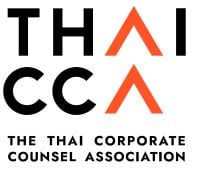

Legal counsel | Sermsang Power Corporation







Sarmornmart Chaiphatikarn
Legal counsel | Sermsang Power Corporation
What are the most significant cases or transactions that you have recently been involved in?
I have been working as a legal counsel for Sermsang Power Corporation since 2014. SSP has been recognised as a leading renewable energy producer in Asia by producing and distributing electricity to states, public traded utility corporations and industrial users throughout Asia: Thailand, Japan, Vietnam, Mongolia and Indonesia. SSP has currently seven operating solar farms, two wind farms, one biomass power plant and 108 solar rooftop projects with the total Power Purchase Agreement (PPA) of 282 eMW in 1Q24; additionally, there are several projects with diverse sources of energy under the process of development which target to drive SSP’s eMW to be over 600 eMW by next five years.
In recent years, I was involved in the development, construction, and financing of 48 MW wind power project located in Tra Vinh, Vietnam in which the project had successful COD in October 2021. For the period of 2022-2024, I have participated in the M&A of 45 MW Winchai wind farm located in Mukdahan, Thailand by acquisition of 25% shares in March 2022 and having completely ownership 100% equity interest in Winchai Company in March 2024. In the meantime, during July 2023, I conducted feasibility study for alternative business of SSP and worked on the acquisition of 75% equity interest in Samart Plastpack – a modern flexible packaging manufacturer to expand the business opportunities in the new market.
Are the effects of AI on the legal world overplayed, or underplayed?
The increasing use of AI for running businesses in many aspects is a transformative trend in the corporate world, including the legal realm. Many people use AI-powered tools such as ChatGPT and machine research to perform the tasks that normally require human resources.
In the sense of basic legal information, AI is well placed in providing general knowledge and easy access to more people. AI is also useful to people who do not have a legal background, as it can simplify sophisticated legal concepts into a simple explanation.
There are several benefits for legal professionals, such as using AI tools for admin tasks and repetitive tasks which AI can help in reducing time-consuming and minimising the risk of human errors. These advantages enable lawyers to streamline their higher-value work, leading to increased legal productivity.
However, in case of complex legal conditions, comprehensive analysis and legal decision-making should be taken into account, among other things, data privacy and security measures need to be properly considered and addressed.
The implementation of AI in the legal sector presents both opportunities and challenges, awareness on AI impacts will enable lawyers to enhance the legal industry more efficiently and productively. To establish guidelines and protocols to regulate the use of AI is crucial in order to promote sustainable AI in the foreseeable future.
How do you see the general counsel role evolving in Thailand over the next five-ten years.
The general counsel in Thailand, nowadays, is no longer simply a provider of legal advice or day-to-day legal tasks, but they are required to have more responsibility for higher-level and be able to deliver strategic work to promote the businesses.
The modern general counsel is expected to go beyond the boundaries of the legal department, instead they are required to collaborate with finance departments on budgeting and reporting, and to take part in the development of new projects for the company with the business development team.
It is obvious that the rapid changes in the business environment such as technology and new policies have affected the roles of in-house lawyers. Looking ahead to the next decade, as Thailand’s businesses will grow in both size and complexity, I personally believe that the general counsel must meet a multitude of challenges and will need to perform new roles: the data protection officer, company regulator, risk manager, legal engineer, business developer, legal data analyst.
Moreover, during times of uncertainty on environmental, social and political, the general counsel will act as an ethical and regulatory compass to reshape the corporate integrity, such as the responses to community impact, and climate change; establishing equitable working policies following the Covid-19 pandemic, to enable organisations to better respond to the upcoming phenomenon.
The general counsel’s role continues to evolve and expand to the areas which are not only related to the practice of law. This significant evolution is evidence of how the general counsel plays a key role and is a vital player in the corporate sector and country.
Legal counsel | Sermsang Power Corporation